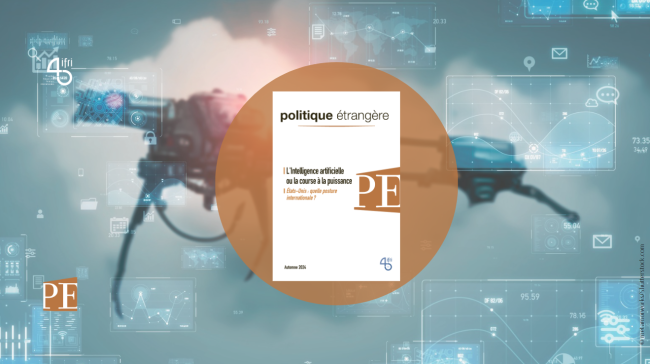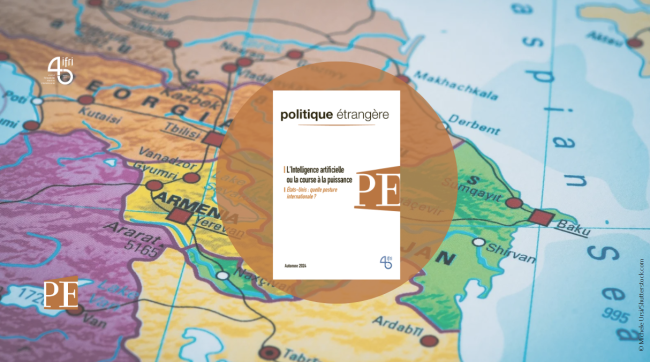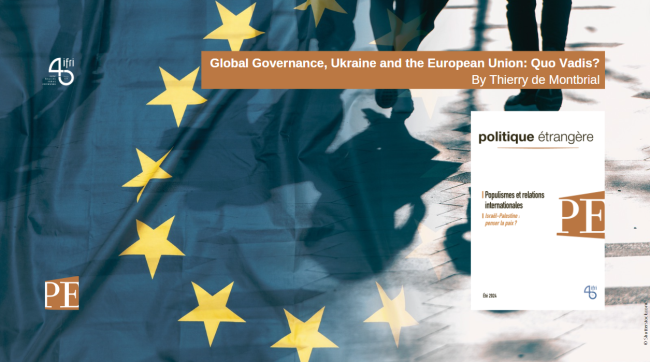Politique étrangère

Artificial Intelligence, or The Race for Power
Artificial intelligence (AI) is here to stay, and its use is spreading at a rate that is difficult to comprehend.
From Ukraine to Gaza: Military Uses of Artificial Intelligence
The wars in Ukraine and Gaza show us the extent to which artificial intelligence (AI) has become integral to battlefield operations.
The South Caucasus: A New Strategic Space?
The states of the South Caucasus are trying to find their footing in an increasingly fragmented international landscape.

Populism and International Relations
Populism is flourishing, in Europe and elsewhere: a populist holds power today in Argentina and perhaps tomorrow in the United States. What does its spread say about our societies? And how is it shaping them, where populists rule? Do their economic policies stand any chance of success? Do their foreign policies have a greater impact on the world around them or at home? If “Trump 2.0” comes to be, will he have a free hand? If so, what can we expect?
Global Governance, Ukraine, and the European Union: Quo Vadis?
The technological revolution of the latter half of the twentieth century, 9/11, and the 2007–2008 financial crisis have delimited the West’s dream of harmonious globalization.
Israel-Palestine: One Solution, Two States
First proposed in 1936, the two-state solution has got lost over the course of several Israeli-Arab wars, colonization, the failure of the Oslo Accords, and the strategies of Israeli governments seeking rapprochement with certain Arab regimes. But it is currently the only imaginable solution. The numerous obstacles in its path could be overcome if the United States and its allies decided to impose it on the Israelis and Palestinians in opposition to their short-term visions.
Israel-Palestine: The Question of Geography
The attacks on October 7, 2023, and the Israeli retaliation against Gaza have dramatically highlighted the continued absence of a solution to enable the coexistence of two peoples in the same territory. Both sides reject the idea of a single state. But the geography of Israeli colonization makes the territorial inscription of a Palestinian state almost impossible. The exception would be if Israel, possibly under international pressure, made drastic changes to its colonial settlements in the West Bank.
Support independent French research
Ifri, a foundation recognized as being of public utility, relies largely on private donors – companies and individuals – to guarantee its sustainability and intellectual independence. Through their funding, donors help maintain the Institute's position among the world's leading think tanks. By benefiting from an internationally recognized network and expertise, donors refine their understanding of geopolitical risk and its consequences on global politics and the economy. In 2024, Ifri will support more than 70 French and foreign companies and organizations.














